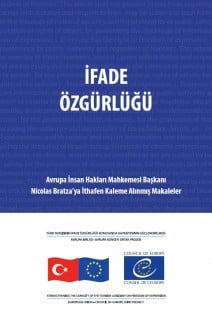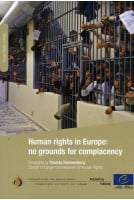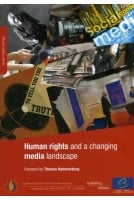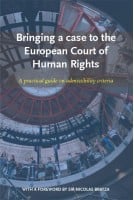



Freedom of expression is one of the cornerstones of all democratic systems. Without it ideas about how to protect the common good in our societies would be impoverished. A marketplace of ideas is essential for democracy to thrive. It is for this reason that the European Court of Human Rights attaches such importance to political discourse as well as to speech and other forms of expression that may shock and offend. Yet such freedom may clash with other rights such as the right to privacy, the right to a good reputation. It may even conflict with the need to protect public order or morals. Societies require pluralism if they are to grow yet democracy also seeks to limit extreme forms of speech that preach hate and advocate violence. But are such restrictions on free speech legitimate and by what criteria are we to judge their necessity?We rely on journalists to report accurately the controversies of the day and protect their right not to reveal sources. They also enjoy a broad right of fair comment. But we expect them to be responsible in their factual reporting, to check their sources and to have regard to the need to observe some degree of restraint when reporting or commenting on matters that affect the rights of others. But is it legitimate to interfere with reporting that is in the public interest and how can the law promote responsible journalism?This collection of essays on freedom of expression contains contributions by distinguished judges and lawyers from many varied backgrounds that explore these themes with a critical eye. The book seeks to honour Sir Nicolas Bratza, President of the European Court of Human Rights, for his outstanding contribution, as a jurist and leading judicial figure, to the protection of human rights in Europe.
Sir Nicolas Bratza
President of the European Court of Human Rights
Cases pleaded by Nicolas Bratza before the Court and the Commission
Foreword
Separate opinions
The opinions, separate and otherwise, of Nicolas Bratza
Freedom of the press and privacy
Freedom of expression and responsible journalism
The freedom of expression of judges, lawyers, witnesses and civil servants
Offensive speech - hatred, violence and blasphemy
Freedom of expression in context
Freedom of expression, the "margin of appreciation" and issues of proof and evidence
Nicolas Bratza at work in Strasbourg







Freedom of expression is one of the cornerstones of all democratic systems. Without it ideas about how to protect the common good in our societies would be impoverished. A marketplace of ideas is essential for democracy to thrive. It is for this reason that the European Court of Human Rights attaches such importance to political discourse as well as to speech and other forms of expression that may shock and offend. Yet such freedom may clash with other rights such as the right to privacy, the right to a good reputation. It may even conflict with the need to protect public order or morals. Societies require pluralism if they are to grow yet democracy also seeks to limit extreme forms of speech that preach hate and advocate violence. But are such restrictions on free speech legitimate and by what criteria are we to judge their necessity?We rely on journalists to report accurately the controversies of the day and protect their right not to reveal sources. They also enjoy a broad right of fair comment. But we expect them to be responsible in their factual reporting, to check their sources and to have regard to the need to observe some degree of restraint when reporting or commenting on matters that affect the rights of others. But is it legitimate to interfere with reporting that is in the public interest and how can the law promote responsible journalism?This collection of essays on freedom of expression contains contributions by distinguished judges and lawyers from many varied backgrounds that explore these themes with a critical eye. The book seeks to honour Sir Nicolas Bratza, President of the European Court of Human Rights, for his outstanding contribution, as a jurist and leading judicial figure, to the protection of human rights in Europe.
Attention, en vertu de nos conditions générales de vente, l'achat des PDF/epub est réservé aux particuliers.
